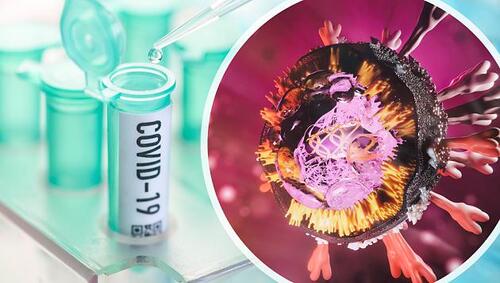This Blog Post is now in the queue for publishing as requested.
Depending on transfer load expect completion in around 15 minutes or 60 minutes if it has just been published by the owner.
This Blog Post has been removed from the queue for publishing as requested.
Coronavirus Achilles heel: Researchers find mechanism to destroy it
Posted by
Otto Knotzer on July 24, 2020 - 7:41am
Virus-host relationship decodedResearchers find the Coronavirus Achilles heel - and a mechanism to destroy it

gettyimages / Bill OxfordResearch has identified 87 drugs that are either already approved or are being tested in clinical trials and that inhibit the kinases altered by Sars-CoV-2.
FOCUS online author Michael Odenwald
Friday, July 24th, 2020, 8:59 am
Could drugs that are normally used to fight cancer and inflammation prevent coronavirus proliferation? A new study now suggests that. But it has its limits.
The Sars-CoV-2 coronavirus, which causes the lung disease Covid-19, can make people very sick and kill them. To do this, it uses a number of mechanisms that not only serve to attack body cells, but also influence the immune system. The virologists have already been able to decode many of them.
Now, an international research group in the journal "Cell" describes another trick of the pathogen that enables it to jump from cell to cell very efficiently: it forces infected cells to form spaghetti-like tentacles to which newly formed viruses adhere. They pierce the shells of neighboring cells. The pathogens can penetrate through the holes.
All current information can be found in the live pandemic ticker
"Our hypothesis is that this speeds up the infection," says molecular biologist Nevan Krogan from the University of California at San Francisco, who led the study. "Because these scary and evil tubes can infect several cells at once."
Researchers wanted to know which proteins the corona virus interacts with
For their study, the researchers investigated how Sars-CoV-2 changes the proteins in an infected cell. To do this, they used a list of 332 human proteins that can interact with the proteins brought in by the virus.
Her special interest was the so-called phosphorylation: In this process, small phosphorus-containing molecules are attached to other biomolecules, especially to proteins. This regulates their activity. This plays a role in many processes such as cell growth, division and aging, but also in protein synthesis.
Phosphorylation is controlled by certain enzymes, the so-called kinases. "They are the main control panel of the cell," explains Krogan. "If the virus can manipulate this console, it can affect things to promote infection."
"Dramatic re-arrangement in the phosphorylation of virus and host proteins"
Kogan and his colleagues carried out their investigations on kidney cells of green monkeys, which are affected by Sars-CoV-2 just as easily as human cells. They saw "in the monkey cells a dramatic re-arrangement in the phosphorylation of virus and host proteins," says the study. For example, 40 of the 332 proteins examined and 49 other kinases were differently phosphorylated in infected cells than in intact cells, which increased or reduced their activity.
The activity of a particular kinase, the casein kinase 2, had changed particularly strongly. It belongs to a cellular signaling pathway that regulates the growth of the cell skeleton. This structure determines the shape of a cell and gives it stability. As further analyzes showed, the virus literally hijacked casein kinase 2 and, due to the increased activity, forced the formation of the tentacles (technically: filopodia). They could be seen in images that researchers from the University of Freiburg and the United States' National Institutes of Health took with powerful electron microscopes.
Seven drugs prevented the virus from multiplying
Other viruses such as smallpox, Marburg fever or Ebola are also known to take over the skeleton of infected cells in order to jump from cell to cell. But Sars-CoV-2 forces the formation of longer and more branched tentacles, which enables a more aggressive transmission. "The visualization of the extensive ramifications of the filopedia once again inspires our understanding of the interaction between virus and host and helps us to find possible starting points for an intervention," states study leader Kogan.
In fact, the observation revealed "the Achilles' heel of the infected cells," Kogan said. With his colleagues, he identified 87 drugs that are either already approved or are being tested in clinical studies that inhibit the kinases altered by Sars-CoV-2. Seven of these, which are normally used to treat cancer and inflammation, prevented the virus from multiplying in experiments.



